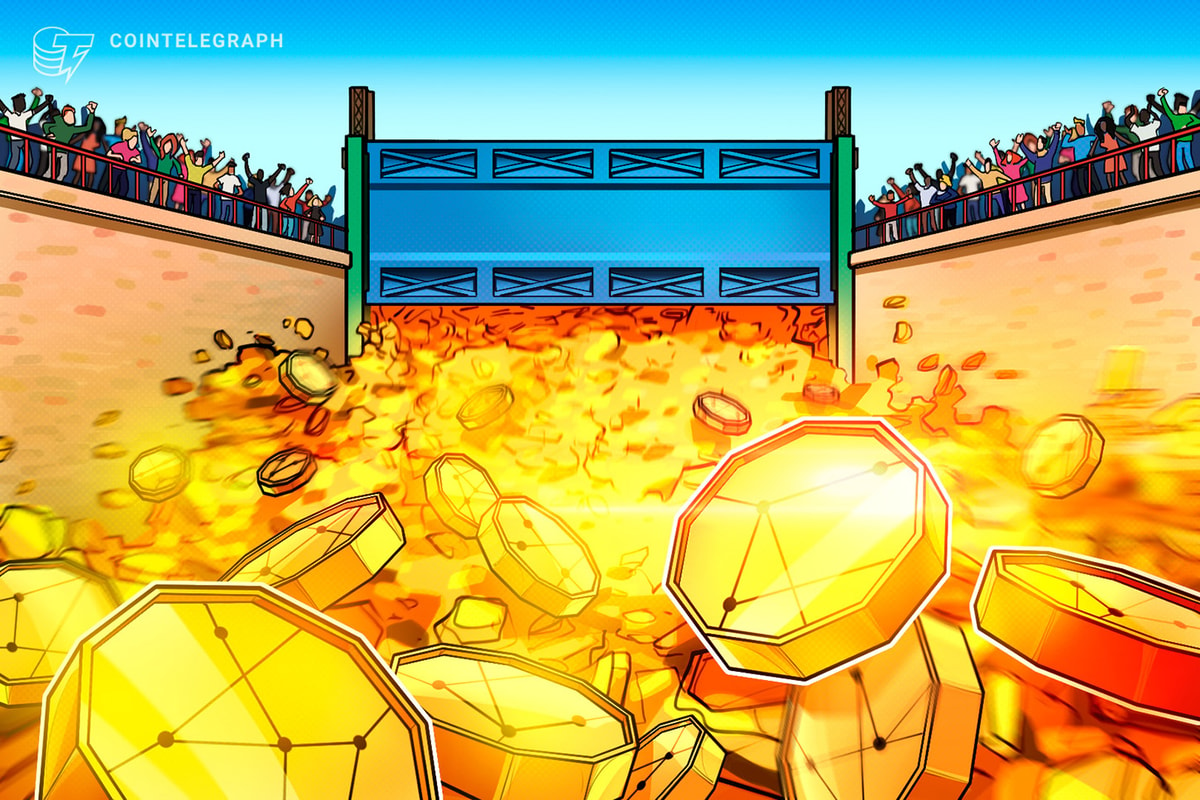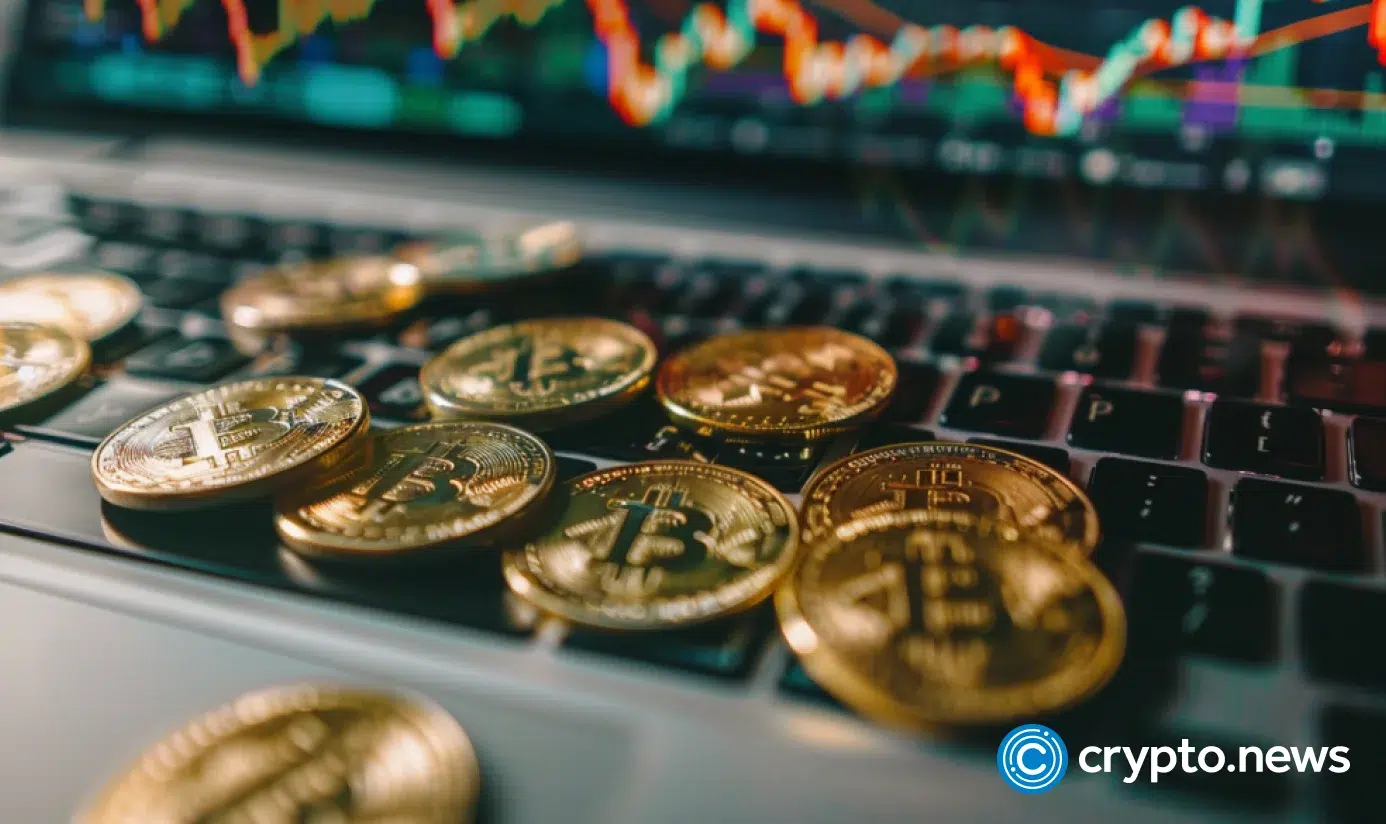Common ground between Bitcoin mining operations and AI data center requirements is now the focus of institutional investors and Washington, D.C. policymakers alike.
Jul 7, 2025, 3:53 p.m.
In the race for AI supremacy, North America is now learning important lessons from the bitcoin
mining industry about building large-scale infrastructure close to sustainable energy sources, according to serial entrepreneur Kevin O’Leary.
“It all comes down to power,” said “Sharktank” star O’Leary in an interview. “Whether you’re talking about an AI data center or you’re talking about bitcoin mining. And now we are seeing that very often these projects are a bit of both.”

A serendipitous overlap between bitcoin mining operations and AI data center requirements has become an area of focus for Washington, D.C. policymakers, and it’s driving institutional investors to swoop on the best situations, O’Leary said.
For instance, New York state, which initially lacked the right policy to move forward despite its abundance of hydro power off the grid in Niagara Falls, is now “trying to get its mojo back” when it comes to bitcoin mining and AI, according to O’Leary.
“I think some states, like New York and others, have figured out these are high-paying jobs at the cutting edge of two new regulated industries, AI and bitcoin mining and crypto. And they feel that somehow they've missed out,” he said.
These days, more desirable options are in places like West Virginia, North Dakota, Mississippi, and Texas, said O’Leary, who is a backer of Bitzero, a green energy bitcoin mining and data center company with operations in North America, Norway and Finland. “Alberta, Canada is a good example because they have an abundance of low-cost, stranded natural gas,” he said.
Profit squeeze
The bitcoin miners were forced to diversify their business into AI and cloud computing as the recent halving has cut the mining rewards by half, squeezing their profit margin in an already super competitive market. Companies such as Core Scientific (CORZ) have brought the intersection of mining and AI into the mainstream, and other miners such as Hive Digital (HIVE) and Hut 8 (HUT) have pivoted large amounts of their data centers into AI to diversify their revenue.
The marriage of bitcoin mining and hosting AI computing in data centers became an easy way to accomplish this diversification, as the miners are already tapping into the massive amount of electricity needed to support the rapidly increasing data center demands of AI. (A single ChatGPT query requires 2.9 watt-hours of electricity, compared with 0.3 watt-hours for a Google search, according to the International Energy Agency.)
Mega-wattage bitcoin mining operations are typically situated close to abundant energy supplies with industrial-scale power generation connectivity infrastructure already built and running. This makes retrofitting bitcoin mines with AI-powering graphics processing units (GPUs) a potentially attractive proposition — though AI data centers require much more infrastructure.
'Foolish' tariff war
O’Leary says he’s optimistic when he speaks to policymakers about powering the AI boom, namechecking U.S. Interior Secretary Doug Burgum, Oklahoma Governor Kevin Stitt, and Alberta Premier Danielle Smith. O’Leary, who is Canadian, says Smith caught the attention of the bitcoin mining and AI data center industry when she revealed the province has 200 trillion cubic feet of gas at its fingertips.
This is why a tariff war between the U.S. and Canada is “foolish,” O’Leary said, pointing out that China is preparing for the “AI wars” by setting up new coal-burning electrical plants on a weekly basis.
“We’re not just talking about bitcoin mining, this is about the competitiveness of nations,” O’Leary said.
“We’ve got to bring all this back home, but our biggest problem is power. There's no more power on the domestic grid. Nada. And so, if you want a gigawatt in any state, forget about it. You have to figure out a way to build that power yourself from natural gas or nuclear power or something else.”
Read more: AI Is Here, but That Doesn't Mean Bitcoin Miners Are Finished
Ian Allison
Ian Allison is a senior reporter at CoinDesk, focused on institutional and enterprise adoption of cryptocurrency and blockchain technology. Prior to that, he covered fintech for the International Business Times in London and Newsweek online. He won the State Street Data and Innovation journalist of the year award in 2017, and was runner up the following year. He also earned CoinDesk an honourable mention in the 2020 SABEW Best in Business awards. His November 2022 FTX scoop, which brought down the exchange and its boss Sam Bankman-Fried, won a Polk award, Loeb award and New York Press Club award. Ian graduated from the University of Edinburgh. He holds ETH.
.png)
 3 months ago
10
3 months ago
10





